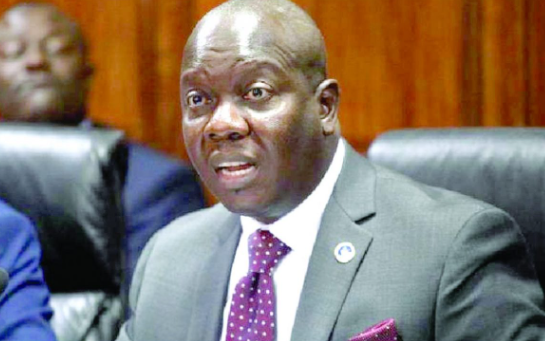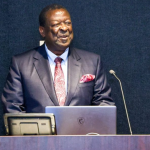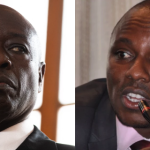The Director of Public Prosecutions (DPP), Renson Ingonga, is facing intense scrutiny over his sudden decision to unilaterally withdraw a case involving Sh292 million against Fredrick Mwamati, the chief executive of the Tana and Athi Water Works Development Agency, and nine other individuals.
The Ethics and Anti-Corruption Commission (EACC) has raised concerns about the DPP’s move, alleging that the decision to drop the charges was made without sufficient evidence and, more importantly, that no public funds were lost.
The case in question involved a tender for the Kinanie Leather Industrial Park Water Supply Project, valued at Sh292.7 million, and was centered on allegations of procurement fraud.
Senior prosecution counsel Kennedy Panyako, representing the DPP, sought to withdraw the charges after a comprehensive review of the case. He noted in his affidavit that he had received a request from the accused, dated June 23, asking for a review of the charges.
The withdrawal of the case, which was being heard before the Kitui Anti-Corruption Court, has sparked a heated debate surrounding the effectiveness of Kenya’s criminal justice system in addressing corruption and procurement scandals. The EACC has labeled the DPP’s decision as an abuse of the court process and a betrayal of public trust.
In an affidavit filed in court, the EACC argues that the DPP’s decision to abandon the prosecution was made in bad faith and without any new evidence to exonerate the suspects. EACC investigating officer Kawira Rauni emphasized that the evidence previously reviewed and approved by the DPP in June 2024 remained valid and sufficient to warrant prosecution.
The accused in the case included Mwamati, Francis Kyalo Siva (General Manager, Infrastructure Development), Dave Otieno Mwango (Manager, Construction and Residual Operations), Duncan Mulandi Mutambuki (Manager, Finance and Accounts), Dickson Mugambi Mungathia (Engineer, Infrastructure Development), and Erick Muendo Ng’alu (Senior Engineer, Construction and Residual Operations).
The withdrawal of the case against Fredrick Mwamati, the CEO of the Tana and Athi Water Works Development Agency, and nine other accused individuals, has raised further controversy, especially following the DPP’s abrupt reversal of his earlier decision to approve charges.
The nine accused, including Mwamati, Peter Muange Kimuyu (Director of Perma Structural Engineering Company Ltd), Joseph Mutua Muange (Director of Antidote Agencies Ltd), Willy Kimuyu Muange (Director of Perma Structural Engineering Ltd), and others, were initially charged with multiple offences, including conspiracy to commit corruption, abuse of office, and wilful failure to comply with procurement laws.
The charges arose from a fraudulent tender for the construction of the Kananie Leather Industrial Park Water Supply Project, which was awarded to Perma Structural Engineering Ltd, a non-responsive bidder. The total value of the project was Sh292.7 million.
The Ethics and Anti-Corruption Commission (EACC) had carried out investigations and presented evidence showing the irregular award of the tender. Following their findings, the DPP had approved charges against the individuals in June 2024, noting there was sufficient evidence to warrant prosecution.
However, just three months later, the DPP, led by Renson Ingonga, decided to withdraw the case, citing insufficient evidence and arguments from the accused that did not justify the prosecution.
This sudden move has sparked protests from the EACC, which insists that it had gathered the necessary evidence, in line with its mandate, to back the charges. EACC Deputy Chief Executive Abdi Mohamud criticized the DPP’s rationale, calling it “untenable,” given that the Commission had conducted thorough investigations and provided compelling evidence.
The withdrawal of the case has not only caused public outcry but also raised questions about the consistency and integrity of the criminal justice system’s approach to handling corruption cases. EACC has reaffirmed its commitment to pursuing the matter and continues to challenge the DPP’s decision, accusing the move of betraying public trust.



